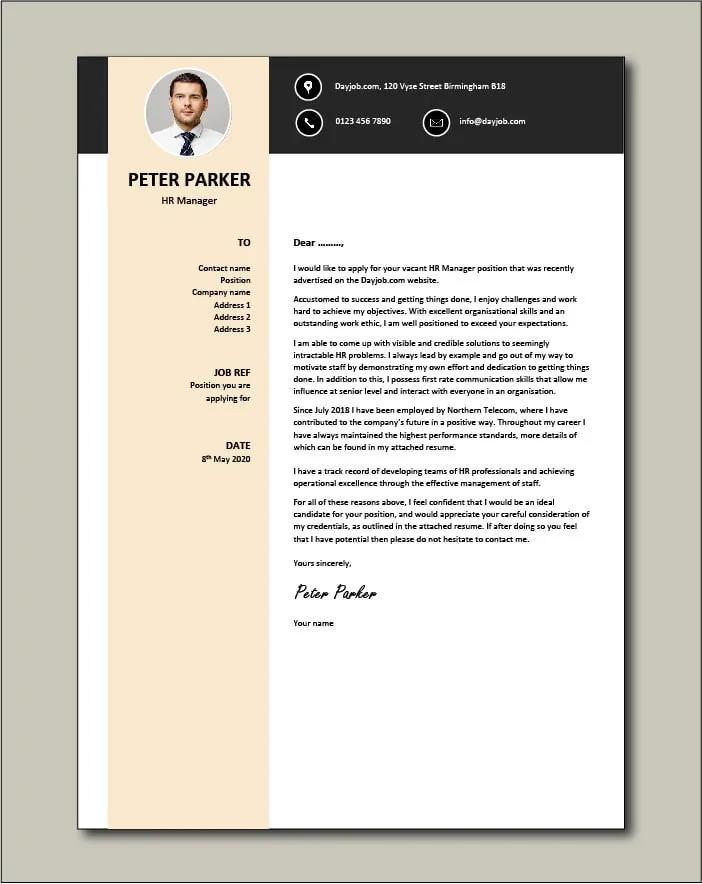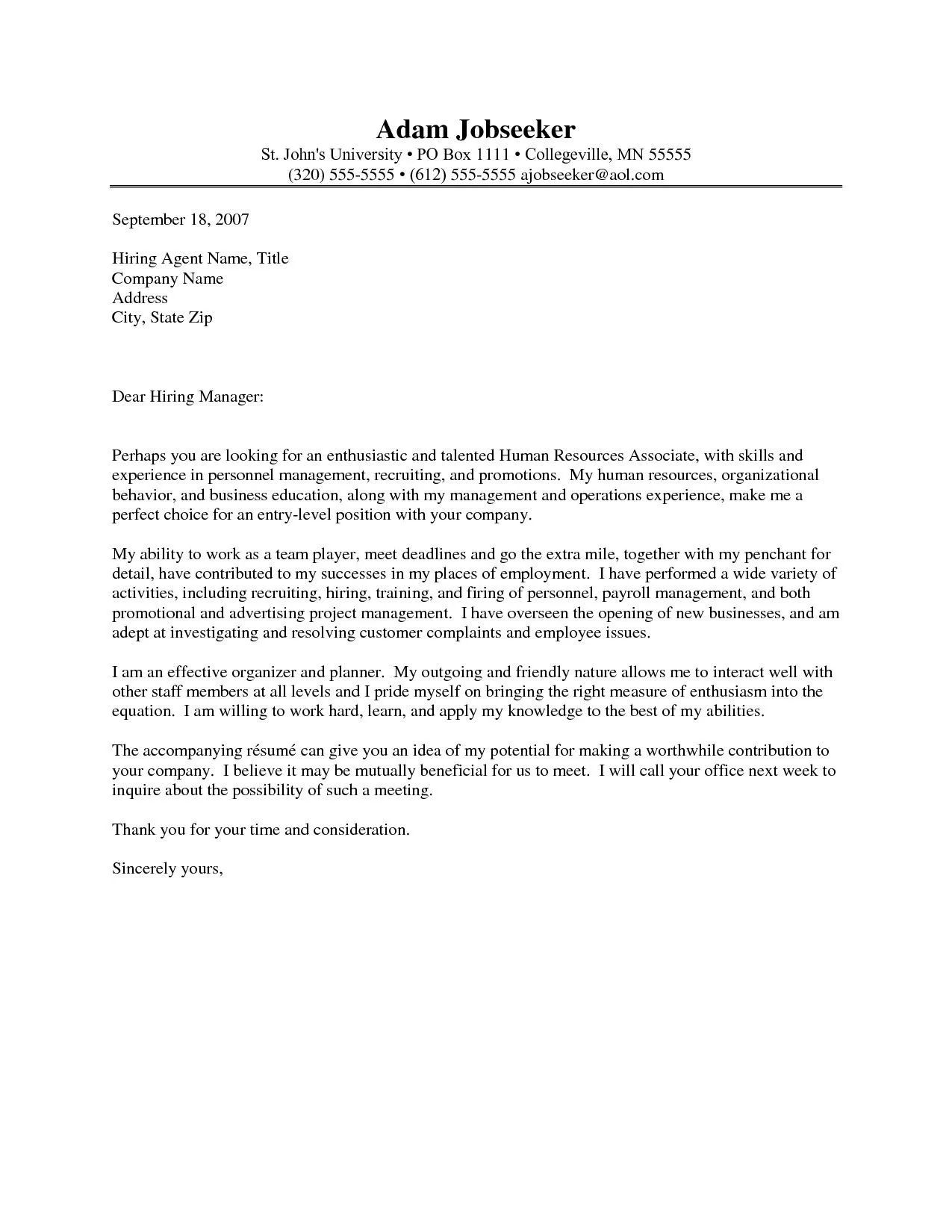Understanding HR Manager Expectations
Crafting a cover letter that resonates with HR managers requires a deep understanding of their expectations. HR managers are not just looking for a recitation of your resume; they’re seeking a window into your personality, communication skills, and how well you align with the company culture. Before putting pen to paper, research the company and the specific role. A cover letter is a chance to showcase your research, as well as to highlight your knowledge and experience. A well-written cover letter can set you apart from other applicants.
Remember, HR managers often have a high volume of applications. Concise and targeted information is key. Make sure your cover letter isn’t overly long or filled with irrelevant details. Focus on the most crucial information, and the ways you are the right fit for the job. Show your professional tone and genuine enthusiasm for the position. Make sure the tone matches the culture of the company. A positive and engaging tone significantly increases your chances of being noticed. Show that you understand the company’s needs. Your cover letter is your chance to demonstrate how you can make the HR manager’s job easier.
Key Elements of a Successful Cover Letter for HR
A winning cover letter has several key elements that, when combined, create a compelling narrative. Begin with a strong opening that grabs the reader’s attention. Immediately make the reader want to read your letter. The opening should also include an expression of interest in the position and the company. Next, show your key skills and experience. Provide specific examples. Make sure your examples are easy to follow and demonstrate how you used your skills, and what the results were. Quantify your accomplishments whenever possible. Specifics are important when demonstrating your value to the company.
The body should be a concise overview of your accomplishments. Make sure the body of your letter matches the qualifications of the job description. Focus on the qualifications that make you a strong fit for the role. Clearly explain what you bring to the company. Close by reiterating your interest in the position. Thank the HR manager for their time and consideration. Include a call to action, like expressing your eagerness to discuss your qualifications further in an interview. Proofread your cover letter before submitting, and ensure it aligns with your resume.
Formatting Your Cover Letter Effectively

Formatting is key to making your cover letter easy to read. Use a professional font, such as Times New Roman, Arial, or Calibri, and keep the font size between 10 and 12 points. Begin with your contact information, followed by the date and the HR manager’s contact information (if available). It will make your application more personal. Aim for a one-page document, because HR managers often have many applications to review.
Use clear and concise language, and break up your text with paragraphs and bullet points. Keep the tone professional, and avoid slang, jargon, and casual language. Maintain consistent formatting throughout. Align the formatting with your resume. Also, consider using a template to guide you. Well-formatted cover letters show that you respect the HR manager’s time and enhance the overall impression you make. Finally, make sure the opening and closing are strong.
Highlighting Your Skills and Experience
The heart of your cover letter should be a showcase of your skills and experiences. Review the job description and identify the key skills and qualifications the HR manager seeks. Provide specific examples of how you’ve demonstrated these skills in previous roles. Use the STAR method (Situation, Task, Action, Result) to structure your examples. Begin by describing the situation, the task, the actions taken, and the results. This structure will provide clear evidence of your abilities. Quantify your achievements. For example, show how you improved customer satisfaction or efficiency.
Tailor your skills and experience to the job’s specific needs. If the job requires knowledge of specific software, highlight that. Your letter should not be a general overview, but rather highlight the qualifications that match the job description. Focus on accomplishments that directly address the job requirements. Be sure to show your ability to adapt, which will leave a positive impression on the HR manager, and show you are ready for the job.
Tailoring Your Cover Letter to the HR Manager
A generic cover letter will not make a strong impression. Tailoring your letter to the specific HR manager and company demonstrates genuine interest. Research the company before you start writing. Understand their mission, values, and recent activities. Address the letter to the specific HR manager. If you can, address the letter by name to make a personal connection and show you’ve taken the time to learn about the company.
Personalize your letter by mentioning something specific about the company or the role that interests you. Tailor your letter to the job description. Match your skills and experience to the specific requirements and responsibilities in the job posting. Make each letter for each job unique. The extra effort can increase your chances of securing an interview. By personalizing, you make a strong impression and distinguish yourself from other applicants.
Proofreading and Editing Your Cover Letter

Proofreading and editing are the final steps to make sure your cover letter is polished. Proofread your cover letter for errors in grammar, spelling, and punctuation. Typos and grammatical errors undermine your credibility. Use spell check and grammar check tools, but do not rely on them completely. Those tools can miss errors. Read your cover letter aloud to catch awkward phrasing. Have a friend or career advisor review your letter for feedback. The fresh set of eyes can often spot errors.
Pay close attention to formatting. Make sure the font, spacing, and layout are consistent. Eliminate unnecessary words to keep the letter concise. A well-edited cover letter demonstrates professionalism. Ensure that your details are correct, and your skills are tailored to the job. Taking time to proofread and edit your cover letter can improve your chances of success.
